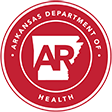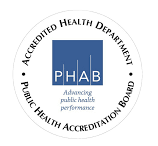Rabies Animal Bites
Maps and Data | Health Care Professionals | Frequently Asked Questions
What should you do if an animal bites you?
Rabies is a viral disease that affects warm-blooded animals such as dogs, cats, skunks, bats, etc. The virus is spread when saliva containing rabies virus gets into an opening in the skin, usually by the bite of a rabid animal. You can also get rabies if the saliva from a rabid animal gets into your mucous membranes (eyes, nose, or mouth) or any open wounds.
- It is important to confirm whether or not the animal could have been rabid at the time of the bite. Detain or hold the animal if it can be done safely. Note what the animal that bit you looks like and the place where the bite took place. Call for help and report this information to your local county health department, an animal control officer or local police authorities.
- A HEALTHY DOG OR CAT that bites a person should be confined and observed for TEN (10) DAYS. Any illness during this quarantine period should be immediately evaluated by a veterinarian and reported to the local County Health Unit. Dogs or cats alive 10 days after the incident could not have transmitted rabies at the time of the bite.
- If signs of rabies develop, the dog or cat should be humanely killed and its head tested for rabies.
- Any STRAY OR UNWANTED DOG OR CAT that bites a person may be killed immediately. Avoid damage to the animal’s head and submit the head for rabies testing.
- A WILD OR EXOTIC ANIMAL that bites a person should be immediately killed avoiding damage to the head, which is needed for testing by the Health Department. There is no 100% safe quarantine time for wild animals. High risk animals in Arkansas are skunks and bats. Any encounter with a bat should be reported and evaluated for risk of rabies.
- A HEALTHY DOG OR CAT that bites a person should be confined and observed for TEN (10) DAYS. Any illness during this quarantine period should be immediately evaluated by a veterinarian and reported to the local County Health Unit. Dogs or cats alive 10 days after the incident could not have transmitted rabies at the time of the bite.
- Immediately wash the wound thoroughly with soap and water. See a doctor about the wounds as soon as possible. Your doctor, possibly in consultation with the state health department, will help decide if you need treatment to prevent rabies. In addition, bite wounds can become infected and a physician will decide if you need antibiotics. You should also check with a physician about the possible need for a tetanus shot.
- Vaccinate your dogs and cats, as well as valuable livestock. Arkansas rabies law requires that all dogs and cats must be vaccinated against rabies by four months of age by a licensed veterinarian. One shot is not enough; rabies vaccinations must be kept current so talk with your veterinarian about when your pet needs its rabies booster shots. Rabies vaccinations in dogs and cats can last up to three years, depending on the vaccine used as well as any previous vaccinations. Vaccinating our pets creates a barrier between rabies in the wild and people.
- You should not try to play with or feed other people’s pets unless you know them, and the pet knows you. And you should never try to pet or feed a stray or wild animal. If it is an animal that you do not know, think of it as wild and leave it alone - even if it is a cat or a dog!
Bite Prevention
- Do not approach or try to handle animals, including dogs and cats that you do not know.
- Do not touch sick or injured animals. Call and report them to an animal control officer.
- Do not let your pets roam; keep them restrained. Train and socialize them so they are calm around people.
- Educate children about bite prevention. Children are the most common victims of severe dog bites.
The Public Health Laboratory of the Arkansas Department of Health (ADH) performs rabies tests on animals. They test wildlife that have bitten or exposed a person or domestic animal. They also test pets that have bitten or exposed a person, or get sick with signs of rabies or die during a 10-day confinement after biting a person. The laboratory will test agricultural animals that show signs of brain disease or have potentially exposed a person. The laboratory discourages testing small rodents such as mice, rats, hamsters, etc., as they have never been known to transmit rabies to people and are not considered a risk for rabies exposure. There is no test for a live animal; the animal must be dead before the test can be done.
It is mandatory to report mammalian animal bites to the Arkansas Department of Health (ADH). For help with assessing the risk of rabies from an animal bite, please fill out the online animal bite investigation form at this link. If you need more immediate medical guidance, you may contact us at (501) 280-4136 during normal business hours, or (800) 633-1735 after normal business hours, on weekends, and on holidays.


